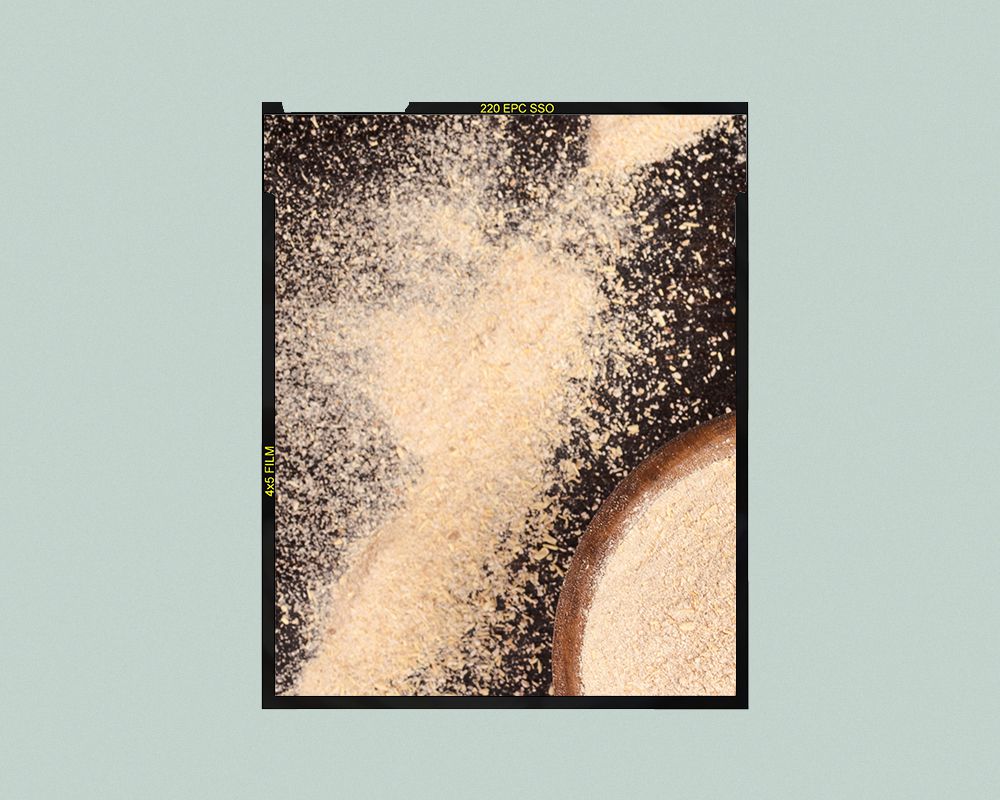Did 2020 Make Us Age Quicker? We Investigate
Afriend of mine recently sent a picture of the two of us from 2019. It was summertime. I was wearing an airy linen dress and had braided the front strands of my hair à la Margot Robbie on the Cannes red carpet. I looked carefree, fresh, and youthful (I was 33 years-old at that point, for context). I swiftly responded, “Wow, I have aged,” to which she quickly replied, “Same.”
A global pandemic coupled with mass shootings, racial injustice, political turmoil, and financial insecurity can really wreak havoc on your wellbeing. Which, according to science, can make a difference in your skin and body, too. After speaking with several friends and colleagues over the last few months, one unified sentiment has rung true: 2020 aged us, with 2021 trailing as a close contender.
Aging has seldom been something I view negatively. I don’t mind wrinkles and have long admired people who champion the expression of growing older. But the last year-plus has felt different. Despite spending fewer days in the sun and having more time to layer on skincare products, I see a tired, depleted version of myself when I look in the mirror.
To determine whether these changes are real or imagined, I tapped mental health and skincare experts to shed light on how the current state of the world might manifest in your complexion.
Cortisol is a Contributing Factor
Raise your hand if you’ve felt stressed over the last year. My guess? All of you are emphatically throwing your hand high in the sky. While a certain level of stress is to be expected, it can wreak havoc on your mind and body. “When we experience stress, even if it is simply imagining a stressful scenario, our bodies release a hormone called cortisol,” Spenser says. “Cortisol is designed to prepare the body with the energy for fight or flight. It starts breaking down the body for resources to use to handle the emergency.”
Cortisol also raises blood sugar, and that can trigger your body to burn through minerals, vitamins, and proteins. “If this is happening repeatedly or continuously, we create a state of high blood sugar that ends up being similar to eating sugar all day, and we become depleted in B vitamins, magnesium, sodium, and potassium.”
While a certain level of stress is to be expected, it can wreak havoc on your mind and body.
A Compromised Epidermal Barrier
What does this mean for our physical selves? In short, it’s not great for our skin. “This catabolic state and imbalance of minerals results in changes to the skin like reduced water retention, reduced circulation, slowed healing, and loss of collagen,” Spenser continues. “With all of this, we see sagging, fine lines, loss of elasticity, and dark circles and puffiness under the eyes.”
Cortisol can also reduce natural lipids that maintain our epidermal barrier. “Without these natural lipids, we get a breakdown in our protective barrier leading to an increase in transepidermal water loss (TEWL) resulting in skin dryness and loss of suppleness,” Taylor explains. “Cortisol also can impact our microbiome, leading to a dysbiosis. Cortisol increases sebum production, which is a source of food for pathogenic acne-causing bacteria.”
If you’re like me and experienced breakouts during the start of the pandemic, this might be the culprit. “When these bacteria break down sebum into glycerol (food) and inflammatory-free fatty acids, this can lead to the development of acne breakouts,” Taylor says.
Stress for Pre-Menopausal People
As if acne breakouts and loss of elasticity weren’t enough, stress can make you age quicker and even affect your reproductive cycle. “Stress disturbs the hormones of pre-menopausal people, and this can make us age faster,” Spenser says. “When people are under continuous stress, the brain may decide it is too dangerous to reproduce and stop ovulation. Successful ovulation is what produces normal levels of the hormone progesterone, and this hormone not only balances estrogen, it plumps our skin and thickens our hair.”
On a scientific level, stress contributes to fast aging inside the cell. “The ends of our twisted DNA strands contain little caps called telomeres—like you see on the ends of shoelaces to keep them from unraveling,” Spenser explains. “Stress shortens these caps, accelerating the aging process. In addition to this, the increased blood sugar results in sped-up sugar metabolism that kicks off many toxic by-products, including something called reactive oxygen species.”
Spenser offers an analogy for understanding reactive oxygen species. “They behave like a child whose lunch money has been stolen, and then steals the next child’s money, and so on, like a chain reaction of damage that continues to spread,” she says. “So it’s not just your skin and hair you see aging, it’s every cell in your body, and this can happen quickly, as in, over the course of one tough year like 2020.”
Stress disturbs the hormones of pre-menopausal women, and this can make us age faster.
Healing and Preparing For the Future
The first step in addressing the issue is tending to your skin. “We can heal the damage caused by stress by employing a minimalist skincare regimen that incorporates five essential functional elements: a gentle cleanser, moisturizer, antioxidant, retinoid, and a sunscreen,” Taylor says. “Collectively, these five key components combine to create an intentional and functional skincare routine to restore damaged skin and to maintain skin youthfulness.” Symbiome’s oils contain three of these five elements, moisturizer, antioxidant and natural retinoids.
Both experts agree that beyond a skincare routine, a holistic approach is necessary. “The key to managing this process is to prevent stress from happening and to turn it off when the danger has passed,” Spenser says. “Every one of us needs to have a daily habit to turn off the stress response and an in-the-moment practice to transform how we react to potentially stressful situations.” She offers meditation, yoga, breathing, tai chi, and prayer as examples of approaches for shifting how we react to and interpret the world around us.
“We also have to take responsibility to work on becoming aware of our thoughts and emotions, and what triggers us and causes us to feel stressed,” Spenser advises. “When I feel myself following my mind down a rabbit hole of emotions, or inventing scenarios that haven’t happened, I practice dropping my attention to my lower belly, acknowledging the emotion or thought, and saying, ‘I see you, I’m pleased you’re here. Thank you for communicating with me.’ And if I can, I try to sit with that attitude for a bit and just allow the feeling to be.”









